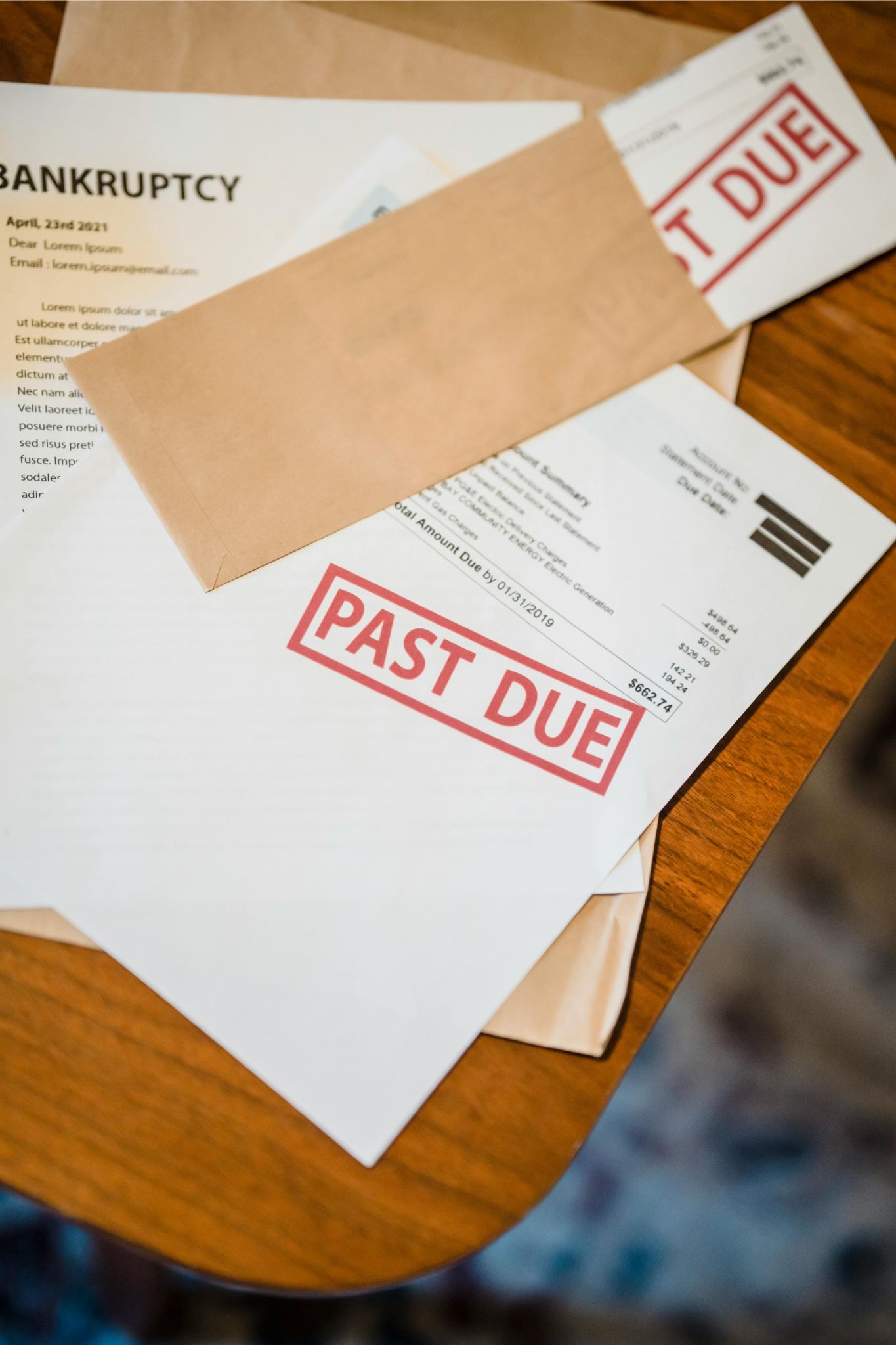Filing for bankruptcy can be a difficult but necessary step toward financial stability. Whether you file for Chapter 7 or Chapter 13 bankruptcy, the process can provide the debt relief you need to get back on your feet. However, many people worry about the long-term impact on their credit and wonder how to rebuild it after bankruptcy.
At Nicole Metzger Law, we know that bankruptcy is not the end of the road for your financial future. In fact, it can be a fresh start, allowing you to regain control of your finances and rebuild your credit. While the path to rebuilding credit after bankruptcy takes time and effort, it is entirely possible with the right steps and a solid plan.
In this article, we’ll walk you through what to expect regarding your credit after bankruptcy, strategies for improving your credit score, and how Nicole Metzger Law can help guide you through the process of financial recovery.
Understanding Your Credit After Bankruptcy
Bankruptcy has a significant impact on your credit score, and the filing will remain on your credit report for several years. Here’s a breakdown of what you can expect:
- Chapter 7 Bankruptcy: A Chapter 7 bankruptcy filing stays on your credit report for up to 10 years. Since Chapter 7 discharges most unsecured debts, creditors view it as a major event, resulting in a substantial drop in your credit score. However, while it does have an impact on reducing the credit score, it is not always a substantial drop as there are many factors involved. Depending on your credit score prior to filing for bankruptcy and your previous payment history, you may not see a huge decline. In this case, your credit will improve more quickly than someone who had poor credit prior to filing.
- Chapter 13 Bankruptcy: Chapter 13 bankruptcy remains on your credit report for up to 7 years. Because Chapter 13 involves a repayment plan where you pay back a portion of your debt, it is viewed slightly more favorably than Chapter 7 in the eyes of creditors, but it will still impact your credit score.
Despite these timeframes, it’s important to know that you don’t have to wait seven or ten years to rebuild your credit. In fact, many people begin seeing improvements in their credit score within one to two years after filing for bankruptcy, provided they take proactive steps to manage their finances responsibly.
How Bankruptcy Affects Your Credit Score
Your credit score is calculated based on several factors, including payment history, credit utilization, length of credit history, types of credit used, and new credit inquiries. Bankruptcy primarily impacts the following areas:
- Payment History: This is the most significant factor in your credit score, and bankruptcy will show as a negative mark on your payment history. However, if you were struggling with late or missed payments before bankruptcy, your credit may have already taken a hit. Bankruptcy can offer a clean slate, allowing you to establish a positive payment history moving forward.
- Credit Utilization: Before bankruptcy, you may have had maxed-out credit cards or high debt balances, which negatively affect your credit utilization ratio (the amount of credit you’re using compared to your credit limits). After bankruptcy, your debts are wiped out (in Chapter 7) or reduced (in Chapter 13), improving your credit utilization ratio.
- New Credit Applications: Lenders may be cautious about offering new credit after bankruptcy, but rebuilding your credit will involve applying for new lines of credit carefully over time. Each application creates a credit inquiry, which can affect your score slightly, but responsible borrowing will help you rebuild in the long term.
Steps to Rebuild Your Credit After Bankruptcy
Rebuilding credit after bankruptcy takes time, patience, and a commitment to making smart financial decisions. Below are some key strategies to help you get started on the path to credit recovery:
1. Review Your Credit Reports
The first step in rebuilding your credit after bankruptcy is to review your credit reports for accuracy. After your bankruptcy is discharged, you’ll want to ensure that all debts included in the bankruptcy are properly marked as discharged and that no errors remain.
You can obtain a free copy of your credit report from each of the three major credit bureaus—Equifax, Experian, and TransUnion—once per year through AnnualCreditReport.com. Look for any inaccuracies, such as debts still marked as active, incorrect balances, or late payments that should have been removed. If you find any errors, dispute them with the credit bureau to have them corrected.
At Nicole Metzger Law, we can assist you with this process to ensure your credit report accurately reflects your bankruptcy discharge and puts you in the best position to rebuild your score.
2. Create a Budget and Stick to It
One of the most important steps in recovering financially after bankruptcy is to create a realistic budget that you can stick to. A budget will help you manage your income and expenses, avoid overspending, and ensure you stay on top of your financial obligations moving forward.
Start by tracking your income and essential expenses such as rent or mortgage payments, utilities, food, transportation, and debt payments (if applicable). Then, allocate a portion of your income to savings and other financial goals. Make sure to leave room for non-essential expenses, but avoid overspending in these areas.
Building a strong financial foundation through budgeting will not only help you avoid falling back into debt but will also show future creditors that you are serious about managing your finances responsibly.
3. Apply for a Secured Credit Card
After bankruptcy, you may have difficulty qualifying for traditional credit cards, but a secured credit card is a great tool to help rebuild your credit. Secured credit cards require a cash deposit that serves as your credit limit. By using the card responsibly and paying your balance on time each month, you can begin to rebuild your credit history.
Here are some tips for using a secured credit card effectively:
- Make small purchases: Keep your credit utilization low by making small, manageable purchases on your secured card.
- Pay your balance in full: Paying your balance in full each month ensures that you avoid interest charges and demonstrates responsible borrowing behavior to creditors.
- Never miss a payment: Payment history is the most important factor in your credit score. Even one missed payment can hurt your progress, so make sure to pay on time, every time.
Over time, consistent use of a secured credit card can help improve your credit score, and you may eventually qualify for an unsecured credit card with better terms.
4. Take Out a Credit Builder Loan
A credit builder loan is another tool that can help you rebuild credit after bankruptcy. With a credit builder loan, the loan amount is held in a savings account, and you make monthly payments until the loan is paid off. Once you’ve paid off the loan, you receive the loan amount, and your positive payment history is reported to the credit bureaus.
Many local credit unions and online lenders offer credit builder loans, which can be a good option if you’re looking to establish a positive payment history and increase your credit score over time.
5. Keep Old Accounts Open
If you have any credit accounts that survived the bankruptcy, such as a mortgage, car loan, or a credit card that was not discharged, keep those accounts open and continue making on-time payments. Length of credit history is an important factor in your credit score, so keeping older accounts open can help improve your score over time.
Just be cautious about using any remaining credit cards after bankruptcy. Aim to keep your balances low and avoid taking on new debt unless it’s absolutely necessary.
6. Avoid High-Interest Loans
While you may be eager to rebuild your credit, avoid the temptation to take on high-interest loans, such as payday loans or high-fee personal loans. These types of loans can trap you in a cycle of debt and make it harder to rebuild your credit.
Instead, focus on building your credit slowly and steadily through responsible borrowing, budgeting, and saving.
7. Monitor Your Credit Progress
Rebuilding your credit after bankruptcy is a marathon, not a sprint. As you take these steps to improve your credit, make it a habit to monitor your credit progress regularly. You can use free credit monitoring tools or services to keep track of changes to your credit score, watch for any new activity on your credit report, and ensure that you’re moving in the right direction.
At Nicole Metzger Law, we encourage our clients to stay proactive about their credit health. Checking your credit report periodically allows you to catch any potential errors and track your improvement over time.
How Nicole Metzger Law Can Help You Rebuild After Bankruptcy
Filing for bankruptcy is a big decision, but it doesn’t have to mean the end of your financial future. At Nicole Metzger Law, we work closely with our clients to not only guide them through the bankruptcy process but also provide ongoing support and resources for rebuilding credit after bankruptcy.
Here’s how we can help:
- Tailored Financial Guidance: We’ll help you create a post-bankruptcy plan to manage your finances, avoid future debt, and rebuild your credit effectively.
- Credit Report Review: We’ll assist you in reviewing your credit report after bankruptcy to ensure that all debts have been properly discharged and that there are no errors holding back your progress.
- Debt Counseling: We can connect you with trusted resources for debt counseling and financial education to help you manage your finances responsibly after bankruptcy.
Rebuilding your credit after bankruptcy takes time and discipline, but with the right steps and support, it’s entirely achievable. At Nicole Metzger Law, we’re committed to helping you not only recover from bankruptcy but thrive in your financial future.
Please note that the above services are in addition to the bankruptcy process, and subject to additional fees.
Final Thoughts
Bankruptcy is not the end of your financial story—it’s a new beginning. While the road to rebuilding credit after bankruptcy may seem daunting, with patience, responsible financial decisions, and the guidance of experienced professionals, you can regain control of your finances and rebuild your credit over time.
If you’re ready to take the next steps toward financial recovery, contact Nicole Metzger Law today. We’re here to help you rebuild your credit, protect your financial future, and ensure that bankruptcy serves as a stepping stone toward lasting financial success.

